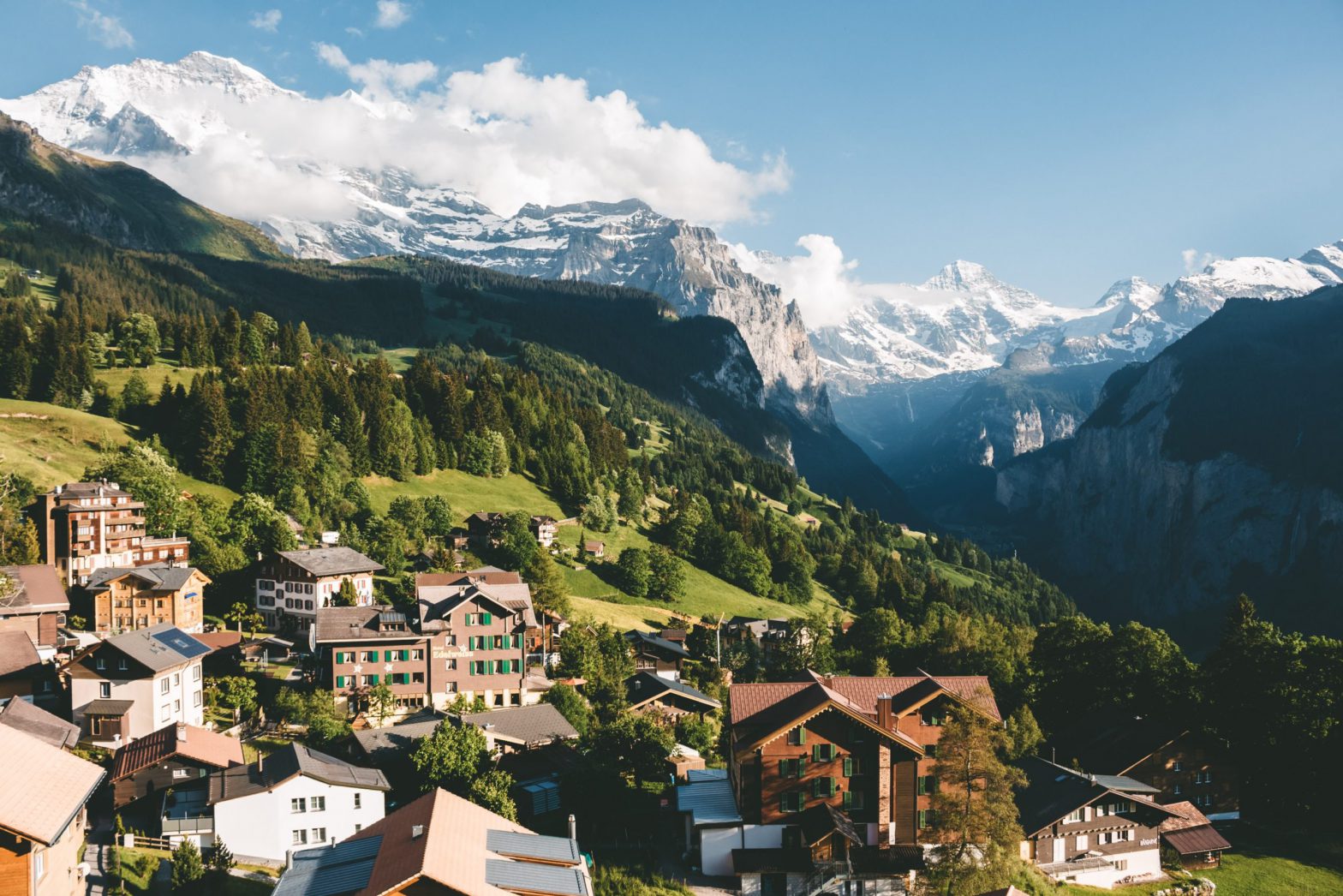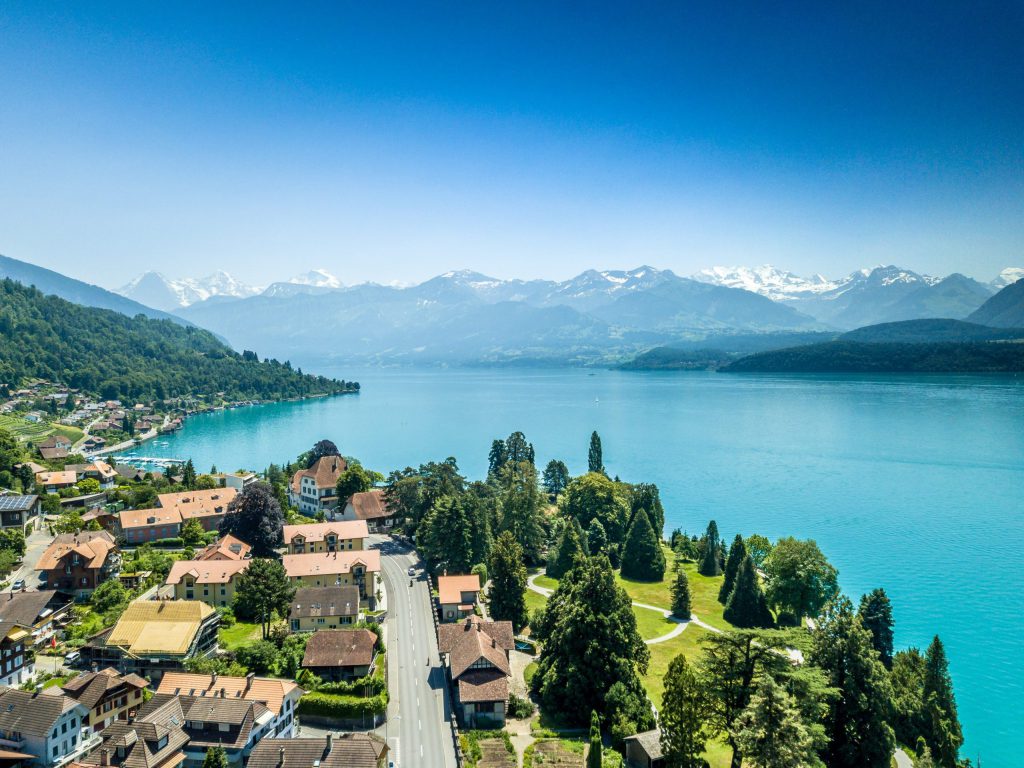Forget about chocolate, cuckoo clocks, yodelling, luxury watches and banks. These clichés no longer do justice to the complexity and diversity that modern Switzerland encompasses. The Swiss Confederation is made up of 26 cantons, each pro-actively practicing multilingualism in four national languages German, French, Italian, and Romansh. This unique cultural mosaic, paired with pristine landscapes and a consistently high quality of life, continues to attract thousands of foreign nationals each year. As of 2025, nearly 26% of the population in Switzerland is made up of expats, one of the highest rates in Europe.
If you’re considering moving to Switzerland, whether as a family, couple, or solo traveler, this guide from Foyer Global Health will give you a clear picture of what living in Switzerland truly involves from health insurance to housing and taxes to transportation.
Why should you move to Switzerland?
Switzerland continues to lead international rankings as one of the best countries to live and work. Since 2019, it’s consistently topped the HSBC Expat Index and is regarded as a dream destination for global professionals, retirees, and families alike.
Unmatched quality of life
Expats admire life in Switzerland for its security, political neutrality, natural beauty, and modern amenities. It scores high on factors like public transport, healthcare, cleanliness, and personal safety. Add to this the breathtaking Alpine views and lakes, and you’ll understand why Swiss cities like Zurich, Geneva, and Bern consistently rank in global “most liveable cities” indexes.


Income and career opportunities
Professionals moving to Switzerland benefit from some of the world’s highest wages. While the median gross monthly salary is CHF 6,502, expats often earn significantly more especially in sectors like finance, pharmaceuticals, engineering, and tech. On average, a relocation results in a 50% increase in salary compared to other European countries. However, this often corresponds to a high cost of living, so financial planning is essential.
Flexible and respectful work culture
Cities like Geneva, Zurich, Lausanne, and Lugano are known for offering flexible working conditions and good worklife balance. Whether you’re employed full time, part time, or working from home, Swiss companies value efficiency and trust, allowing workers to maintain a professional yet balanced lifestyle. Paid leave is generous, and remote work is increasingly common.


A business-friendly country
Switzerland supports entrepreneurs with fast company registration, low bureaucracy, and strong legal protection. Whether you’re launching a start-up or expanding an international business, the Swiss tax system, innovation friendly environment, and access to top talent make it ideal for founders. The federal website offers extensive help for foreigners setting up a business.
A robust economy & transparent democracy
With one of the highest GDPs per capita in the world and low inflation, Switzerland’s economy is both open and resilient. It is driven by high value added exports, including pharmaceuticals, machinery, and financial services.
On the political side, the Swiss government is lauded for its direct democracy, citizen participation, and transparent institutions. The country remains neutral yet globally connected home to international organizations, including the UN and WHO.
Education system in Switzerland
Education in Switzerland is managed at the cantonal level, which means systems and languages vary. However, the country offers outstanding public schools, bilingual education, and access to prestigious institutions like ETH Zurich, EPFL Lausanne, and the École hôtelière de Lausanne. Children learn a second national language early on, preparing them for life in a multilingual society.
International schools in Zurich, Geneva, Basel, and Lausanne offer globally recognized curriculums in English, French, and German, ideal for mobile families.
Taxes: what expats should know
Most expats in Switzerland have their income tax deducted at the source, unless they hold a C permit or earn above a certain threshold. Tax rates vary by canton, typically ranging from 0% to 40%. While individual tax rates are lower than in many EU countries, corporate tax is where Switzerland truly shines.
- Average corporate tax rate: 15%
- VAT: Only 7.7%
- Lump sum taxation (for wealthy foreigners): Based on lifestyle, not income
Switzerland also has double taxation agreements with dozens of countries, including the United States, making it easier for international professionals to manage their finances.

Healthcare and health insurance
The Swiss healthcare system ranks among the world’s best, known for high standards and modern infrastructure. However, medical services are expensive, and private health insurance is mandatory. Within three months of arrival, expats must purchase basic insurance (LAMal) from a local provider, or opt for international coverage such as those offered by Foyer Global Health.
For cross border commuters, specific products like Epion offer seamless coverage across France and Switzerland, ensuring care on both sides of the border.
Nature, environment, and cleanliness
From the Jura Mountains to the Alps, the country is filled with serene lakes, vast forests, and untouched landscapes. Even in the Swiss Plateau, its most populated region, green spaces and clean air are abundant. Cities pride themselves on cleanliness, with Geneva, Zurich, and Lucerne regularly winning awards for public hygiene and waste management. Littering can even result in steep fines, as Swiss people take pride in their public spaces.
Culinary life & swiss delicacies
Swiss cuisine is deeply regional and reflects its cultural blend. From chocolate and cheese (hello, raclette and fondue!) to fine local wines, the food scene is a delight. Don’t miss:
- Italian style pastas and polenta in Ticino
- Gruyère and Emmental cheeses
- Lavaux vineyards’ chasselas wines
- Fresh lake fish dishes in Zurich and Geneva
The best cities to live in Switzerland
Zurich
As Switzerland’s economic capital and largest city, Zurich offers a dynamic job market, high salaries, and proximity to nature. It’s ideal for professionals who want access to both urban life and weekend mountain getaways.
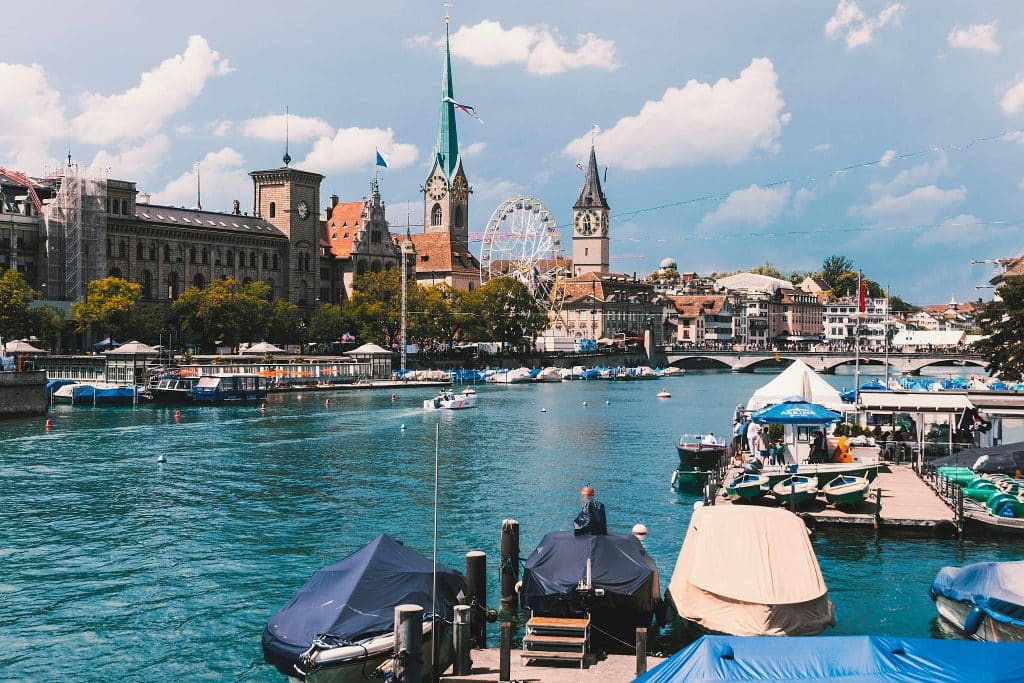
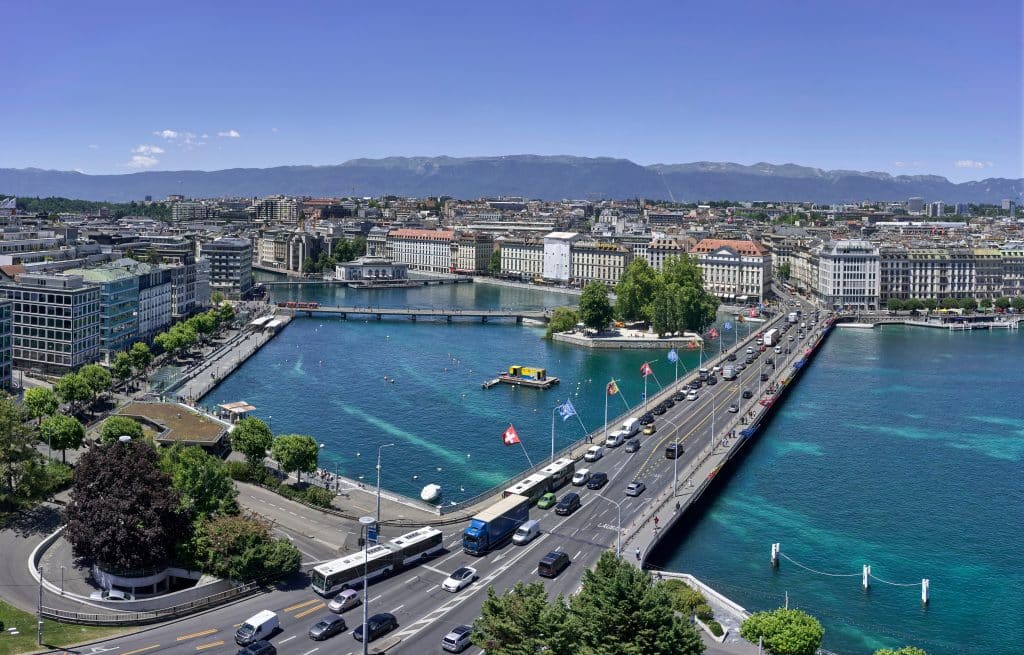
Geneva
With nearly 190 nationalities, Geneva is the world capital for diplomacy and NGOs. From the UN to global banks and watchmakers, the city combines multicultural energy with classic Swiss charm. Museums, opera, and lake activities enrich daily life.
Lausanne
A smaller, French speaking city with a creative soul, Lausanne is perfect for young families and students. It’s home to multinational headquarters, green parks, and iconic schools like EPFL and EHL. Ranked the world’s best small city by Monocle magazine, it offers a relaxed yet international lifestyle.
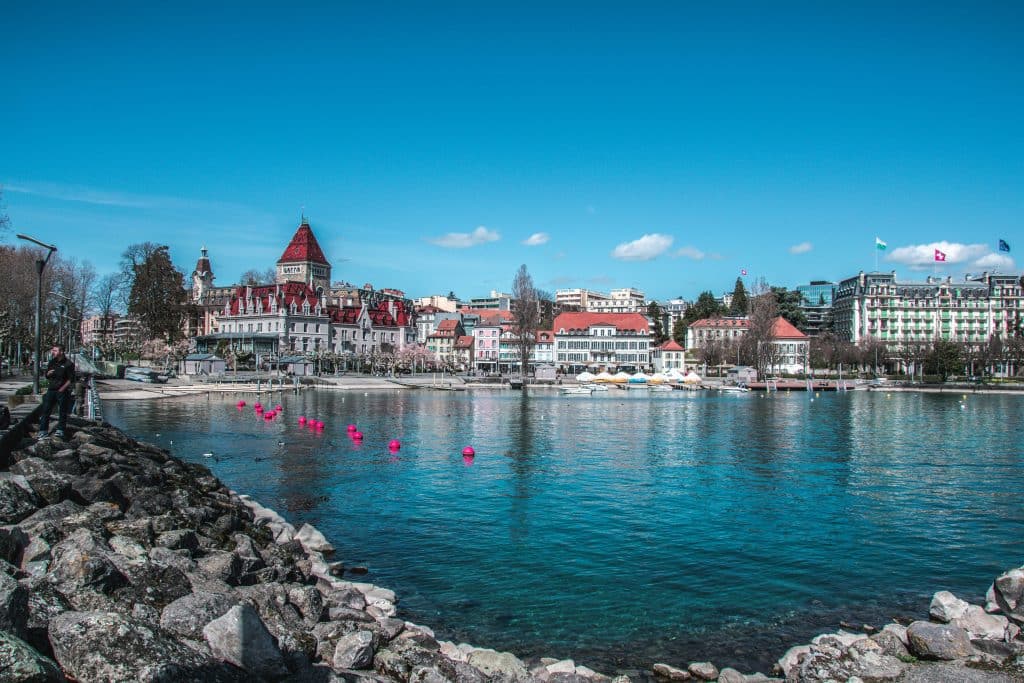
Immigration and residence permits
EU/EEA citizens can easily move to Switzerland with minimal red tape. You simply need a residence permit, a job contract, and proof of address.
Non-EU citizens face more hurdles: they must secure a job before arrival, and only highly qualified professionals are usually granted work permits. Always check the cantonal migration office for requirements.
The true cost of living in Switzerland
Yes, the cost of living in Switzerland is high but so is the quality life. Here are some of the key expenses:
- Rent: CHF 1,800–3,500/month in major cities
- Health insurance: CHF 300–500/month
- Public transportation: CHF 85–120/month
- Groceries: CHF 600/month for one person
Some foreign nationals choose to live in France or Germany and commute. Swiss border regions like Basel and Geneva offer access to both worlds.
Housing: renting and buying
Renting
Demand in cities like Geneva and Zurich is fierce. Expect to show work contracts, credit checks, and references. Rents range from CHF 1,000 for studios to CHF 5,000+ for larger flats.
Buying
Homeownership is low (just 40%), but expats can purchase property with 20% down and the right residence permit. Prices in urban centers like Zurich and Geneva reach CHF 13,000/m².
Public transportation & driving in Switzerland
Public transportation in Switzerland is world renowned. Trains, buses, and trams are clean, fast, and always on time. The Swiss Travel System covers even remote Alpine villages. If you plan to drive:
- Exchange your license within 12 months
- Get insured with a local provider
- Respect strict road traffic laws (fines are high!)
Switzerland’s top attractions
From hiking in the Aletsch glacier to sipping wine in the Lavaux vineyards, Switzerland offers unforgettable experiences:
- Cities: Geneva, Lausanne, Lucerne, Zurich, Bern, Basel
- Skiing: Laax, Zermatt, Gstaad, Verbier, Davos
- Lakes: Lake Geneva, Lake Oeschinen, Lake Lugano
- Romance: Château de Chillon, Bernese Oberland castles
- Italian flair: Lugano and Ascona
Complementary health insurance for cross-border commuters
Foyer Global Health offers complementary health insurance for French cross-border commuters working in Switzerland, enabling them to treat themselves just as easily on both sides of the border. Epion covers you whether you are affiliated to CMU or LAMal, and gives you access to the highest standard of medical care in France and Switzerland, in the establishment of your choice.
